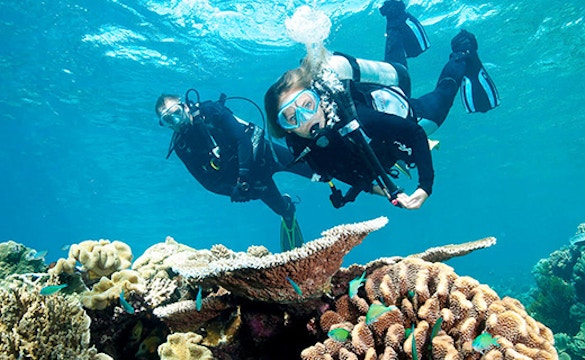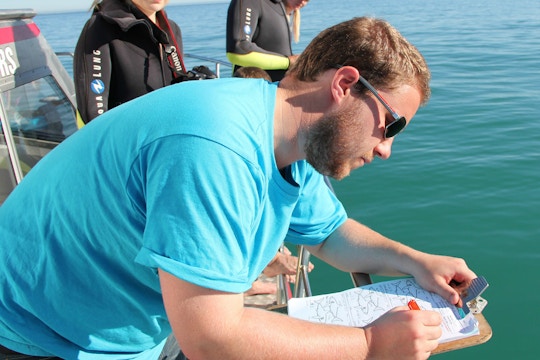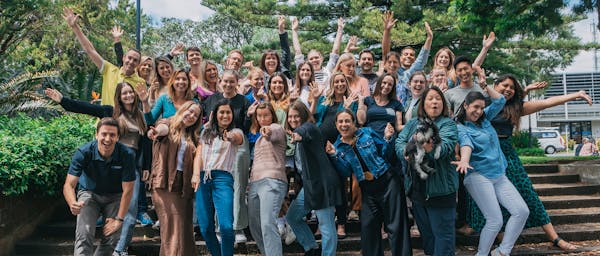The other volunteers were friendly and supportive. The staff were very concerned to make sure that everyone was able to get the most from their volunteering experience.

Marine Conservation Volunteer Project in Madagascar
Purpose
Start dates
Duration
Volunteer hours
Age
Accommodation
Who is going?
Group video calls
Once you have secured your place, join regular video calls to meet your Program Manager and other volunteers before your trip.
This program is ideal for:
Volunteers who are passionate about protecting and conserving the marine ecosystems. You’ll need to be a competent swimmer and have Open Water Dive Certification and Advanced Open Water Dive Certification. These courses can either be completed before you arrive in Madagascar, or you can do them when you arrive. You’ll also need to be able to bring your own diving equipment.
Project details
Ready to don your dive gear as a Marine Conservation volunteer in Madagascar? International Volunteer HQ’s Marine Conservation project enables volunteers to assist oceanographic organisations protecting sea life and the natural marine environment in the crystalline waters of Madagascar. Volunteers gain marine conservation and scuba experience by diving to carry out a wide range of conservation activities that contribute to the health and sustainability of the coral reefs, endangered turtles and other marine life.
What to expect and how you'll make an impact
Madagascar boasts an incredible ecosystem, blending African and tropical influences. However, like many coastal regions around the globe, human development and climate change pose challenges, necessitating efforts to preserve its natural beauty. This is an excellent opportunity to contribute to conservation efforts while gaining hands-on experience through scuba diving.
As a Marine Conservation volunteer in Madagascar, you’ll play a key role in protecting local flora and fauna by assisting oceanographic organisations with various initiatives, such as:
- Reef surveying: Monitoring the biodiversity, health, and growth of the reef system around Nosy Komba through fish, invertebrate, and coral surveys.
- Dive Against Debris: In partnership with the PADI AWARE Foundation, this project focuses on collecting and reporting debris data from underwater clean-up dives.
- Coral Watch: As part of a global initiative, volunteers will help monitor coral health by collecting data on coral bleaching using the Coral Health Chart.
- Beach cleans: In partnership with Ocean Conservancy, we’ll be contributing our clean-up data to their Clean Swell project.
- Community engagement: Teaching the local community about environmental issues, including conservation, biodiversity protection, and sustainable use of marine resources.
- Reef regeneration: Volunteers will continue building artificial reefs and maintaining the coral nursery.
- Data Entry: Assist with data input and analysis from underwater surveys data and photos collected.
Before participating in fieldwork, volunteers receive thorough training, which includes wildlife identification (fish, corals, turtles, and invertebrates) and a mandatory Ecological Monitoring Program course. This advanced introduction to coral reef ecology also includes training on coral baseline surveying, an essential technique in marine conservation.
Additionally, all volunteers will participate in eco-brick and bamboo straw-making, as well as Malagasy language lessons.
Volunteers can expect to complete four one-hour dives per week. Additional work includes data collection, as well as occasional activities such as snorkel surveys and dry tasks.
Participants must be competent swimmers and hold both Open Water and Advanced Open Water Dive Certifications. These certifications can be obtained before arrival or completed in Madagascar at the following costs:
- £347 for Open Water Certification
- £268 for Advanced Open Water Certification
Please note that if you choose to certify in Madagascar, you’ll need to complete the PADI online theory courses prior to arrival.
All Marine Conservation volunteers must bring the following items, as they are not available on Nosy Komba: snorkel, mask with tempered glass, open-heel dive fins (with booties for comfort), a wetsuit (minimum 3mm, short or long), two mouthpieces for regulators, and towels.
Recommended additional items include a surface marker buoy (DSMB), reel (small finger reel is sufficient), waterproof watch (200 meters resistance), dive computer/watch, dive compass, and dive torch.
This project requires a minimum four-week commitment to allow sufficient time for training and to make a meaningful impact. When applying, please indicate whether you have the required certifications or will complete the courses in Madagascar.
Why do Marine Conservation volunteering in Nosy Komba with IVHQ?
When you volunteer in Marine Conservation in Madagascar you’ll be adding value to the local community, while also developing personally and professionally by:
- Helping to protect and preserve the marine environment
- Learning about the effects of climate change
- Developing your communication skills
- Gaining marine conservation experience
- Diving in the stunning waters around Madagascar
- Immersing yourself in Malagasy culture
Volunteer requirements
- To join the Marine Conservation project in Madagascar you’ll need to be a competent swimmer and have Open Water Dive Certification and Advanced Open Water Dive Certification. These courses can either be completed before you arrive in Madagascar, or you can do them when you arrive. You’ll also need to be able to bring your own diving equipment.
- Volunteers aged 16-17 must be accompanied by a parent or guardian to participate in this program
- All volunteers are required to provide a criminal background check to IVHQ prior to departure. Those aged 16-17, if unable to obtain a criminal background check, can provide two character reference letters instead
- All volunteers are required to have adequate volunteer travel insurance
- All volunteers must speak fluent English.
Are you eligible to volunteer?
Submit a free application so we can confirm your eligibility and check availability for your preferred dates.
Not sure which program to join?
Get personalized recommendations >
Who is going?
Group video calls
Once you have secured your place, join regular video calls to meet your Program Manager and other volunteers before your trip.
Madagascar photo gallery



















PADI Dive certifications
For the Marine Conservation project in Madagascar you’ll need Open Water Dive Certification and Advanced Open Water Dive Certification. If you aren’t already qualified, you can train in Madagascar for the following prices:
- Open Water: £347
- Advanced Open Water: £253
This can be paid to the local team when you arrive in Madagascar. If you’re receiving your certification in Madagascar, you’ll also need to purchase and complete the PADI online theory course before you arrive. Other dive certifications may be available for more experienced divers.
Academic course credit

Academic course credit
Gain course credit from your college or university and meet your academic requirements when completing a volunteer abroad program with International Volunteer HQ!
Learn about course creditLocation

Location
There’s far more to Madagascar than its famous lemurs. As well as its impressively vast diversity of wildlife, the island nation off the south-eastern coast of Africa has an interesting marriage of French, African and Southeast Asian cultures; breathtaking scenery and dreamy beaches.
It’s also a place where the majority of people don’t have good access to food, healthcare, education or other basic necessities. While there are steps being taken to improve this situation, Madagascar remains one of the most impoverished countries in the world. Volunteers can be part of the solution by choosing projects that have a meaningful impact on the lives of local people and support communities to help themselves.
The IVHQ Madagascar volunteer abroad program is based on the slopes of Nosy Komba, a small island off the northwest coast of Madagascar and only a few kilometers from the larger island of Nosy Be. Marine Conservation project work mainly takes place on coral reefs and in national marine parks in and around the island of Nosy Be.
Arrival and orientation
The program orientation begins on the first and third Monday of every month. Volunteers need to arrive in Nosy Be before 12 noon on the Sunday before orientation.
After you have registered for the program, please book your flights to arrive in Madagascar. There are two options for flying to the Madagascar program - Fascene Airport (NOS) in Nosy Be is the most convenient for an airport pick-up, however you can fly to Ivato Airport (TNR) in Antananarivo. Some volunteers choose to fly to Antananarivo and take a connecting flight or two-three day bus (and boat taxi) to Nosy Be. If you are interested in taking the bus, please reach out to your Program Manager for more information once you have registered. If you want an easy arrival, we recommend flying to Nosy Be.
If flying into Fascene Airport (NOS) in Nosy Be and arriving before 12 noon, you will be greeted at the airport by a member of the local team and transported to the volunteer accommodation on Nosy Komba. Your accommodation is covered by your Program Fee and includes the night before your program orientation. If your flight arrives after 12 noon, you will still be met at the airport but will need to stay in Nosy Be for the night to then travel by boat to Nosy Komba the following morning. This night of accommodation will be at your own expense and you will need to book this in advance of your arrival. Your IVHQ Program Manager will be happy to send you recommendations of affordable hotels in Hellville that are within walking distance of many shops and restaurants.
If you are travelling in Madagascar prior to your volunteer program, we can arrange for you to be picked up in Nosy Be before 12 noon on the day before your program orientation. You will be taken to Nosy Komba by boat.
Orientation is hosted by our Madagascar team at the volunteer accommodation on Nosy Komba. Orientation begins on the morning of your chosen start date and covers everything you need to know for your volunteer program in Madagascar – an introduction to Madagascar, culture and customs, rules and expectations, safety, travel opportunities and an introduction to project and placement. The orientation will also give you a chance to meet other volunteers.
Volunteer schedule example
First day
You will be introduced to the project staff you will be working with and begin your training.
Weekdays
Volunteers work for approximately 3 hours per day, but start times and daily workloads depend on the tides and dive schedule. Volunteers will be assigned a morning or afternoon dive and this will change throughout your time on the program. A typical schedule is as follows:
| 6:00 - 7:00 AM | Volunteers with a morning dive depart. |
| 7:00 - 8:00 AM | Breakfast prepared by the local in-house cook for volunteers not on morning dives. |
| 8:00 - 9:00 AM | Morning divers returns for breakfast at volunteer camp. |
| 12:00 PM | Volunteers break for lunch. Volunteers either travel back to the volunteer camp or eat a packed lunch at their placement. |
| 12:00 - 2:00 PM | Afternoon divers depart. |
| 4:00 PM | Afternoon divers return. |
| 6:00 PM | Dinner at the volunteer camp prepared by the in-house chef. |
When not diving, volunteers can assist with various tasks at camp, such as data collation, eco-brick making, beach cleans, community engagement, and artificial reef creation. They may also support volunteers on the Teaching project or use this time to study and plan for the following day’s activities.
Accommodation and WiFi
Volunteers are accommodated in locally built open-air huts on Nosy Komba and can expect to share a hut with up to five other volunteers of the same gender.
Bedrooms have bunk beds and there are basic cold shower and flush toilet facilities on-site. Volunteers are expected to contribute to ensuring the bathrooms and huts are kept clean and tidy.
Lockable storage boxes for volunteers are available in the main house, however volunteers should also bring a padlock to secure personal items in their luggage when not in use. Volunteers are required to bring their own towels and sheet, pillow, pillow case, mosquito net and thin sleeping bag/top sheet. It is hot in Madagascar and most people only require a sheet to sleep under, although in the cooler months from June to August, a blanket or sleeping bag may be required.
Power for lights is supplied from solar panels and there is a backup generator for staff that may run 1 - 2 hours per week. Volunteers are encouraged to minimize the amount of electronic equipment they bring as the camp only has limited power points available to charge devices. As there is no other electricity at camp we recommend volunteers bring solar chargers for their devices, if possible. The accommodation is fairly isolated and only accessible by boat or a 30 minute walk across boulders and uneven terrain to the nearest village for WiFi and charging.
WiFi is accessible in the local village and you can also purchase a local SIM card with data for an unlocked mobile phone when you arrive in Madagascar.
Meals
Volunteers are served three meals per day, prepared in the traditional Madagascan style by an on-site Malagasy cook.
Meals are basic, but nutritious and tasty. Breakfast ranges from pancakes to eggs or bread with condiments.
Lunch is rice or pasta based, and dinner is rice based. Both lunch and dinner will usually be either chicken, zebu (beef) or fish, all with vegetables, beans and sauce. Volunteers working on a placement which requires them to be away from camp during lunch time can organise a packed lunch, through the local team, the night before. Supplies in Madagascar are limited and meals will change seasonally depending on the ingredients available on Nosy Be.
Please note that the local team is not able to cater for special dietary requirements or requests and meals are usually carbohydrate heavy. You should not expect to eat as you normally do at home and there is the need to be flexible or prepared to supplement the food provided. If supplementing food, volunteers must note that there is no refrigerator and the kitchen is not available for volunteer use as it is a traditional kitchen. Volunteers can store non-perishable items at camp or can eat out at local restaurants.
A small canteen is available on Nosy Komba for volunteers to purchase snacks. Snacks should be stored in containers located in the dining area.

















Pricing
Spots are limited. For a Registration Fee of just US$299 (approximately £236) you secure your spot and unlock all our preparation and training tools.
You don't need to worry about paying your Program Fee until you get closer to your start date.
Duration |
Program FeeDue 30 days before you start, or within 48 hours if you register inside of 30 days. Covers the cost of hosting you.
|
|---|---|
| 4 weeks | $2,190 Equivalent to $78/day |
| 5 weeks | $2,600 Equivalent to $74/day |
| 6 weeks | $3,010 Equivalent to $72/day |
| 8 weeks | $3,810 Equivalent to $68/day |
| 10 weeks | $4,630 Equivalent to $66/day |
| 12 weeks | $5,450 Equivalent to $65/day |
- All programs attract a Registration Fee of US$299 (approximately £236) in addition to the Program Fee. This covers all pre-departure support services.
- A 5% international banking fee is added at point of payment.
- Recommended spending money: Volunteers in Madagascar generally find US$70-120 per week to be sufficient for expenses.
- Breakfast, lunch and dinner
- Airport pick-up
- Accommodation
- 24/7 in-country emergency support
- In-country program orientation
- Pre-departure support from your Program Manager
- Personalised preparation tools, guides and check lists
- Access to IVHQ’s preferred insurance and flights partners
- Comprehensive in-country day to day support and guidance
- Certificate of International Volunteer Service
Learn more about what's included in your IVHQ Registration Fee and Program Fee.
- Return to the airport when your program finishes
- Flights
- Visa (if required), travel insurance (mandatory), vaccinations, criminal background check.
- Personal spending money for snacks, laundry, public transportation, drinks and leisure activities during your free time.
Popular add-ons & experiences in Nosy Komba
Take your volunteer experience to the next level with these popular add-ons and experiences. Explore your options below and learn how to book them once you've been accepted onto the IVHQ Nosy Komba program.
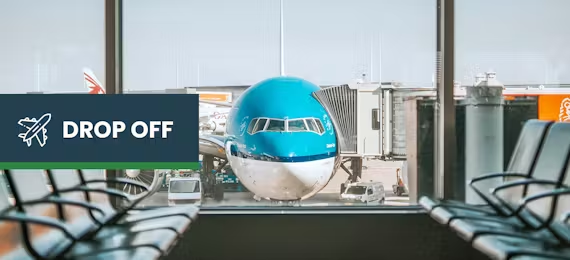
Enjoy a stress free journey from Nosy Komba back to Nosy Be after your program arranged by our local team.
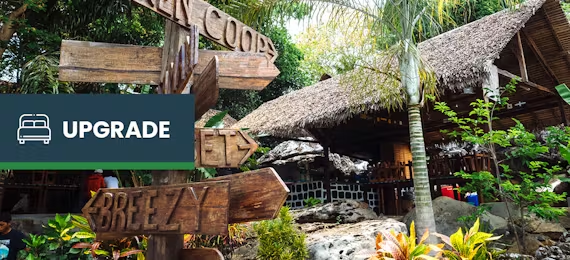
Upgrade to a double private room within the volunteer camp!
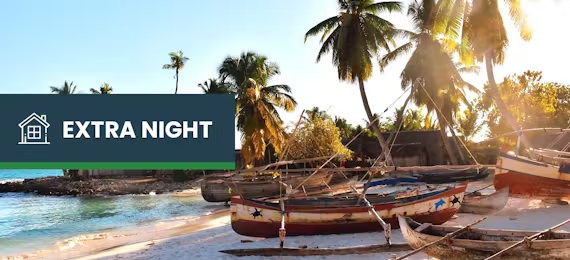
Arriving early or want to stay after your end date? Book your extra nights of accommodation.
Check what's required to visit Madagascar
Safety and support
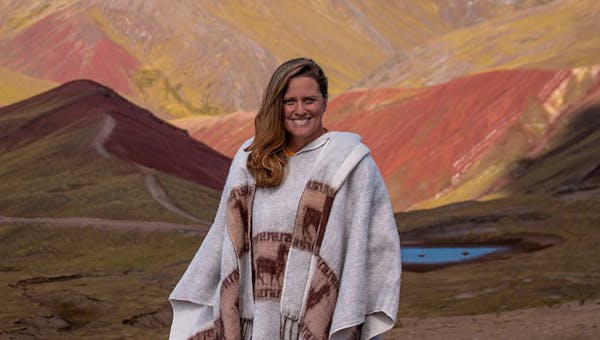
Safety and support
IVHQ follows best practice and industry-leading health and safety procedures, which are regularly reviewed and optimized as part of the B Corporation recertification.
- All volunteers encouraged to complete our interactive pre-departure training.
- All local teams trained on best practice volunteer management & First Aid.
- All IVHQ programs are required to adhere to IVHQ's Risk Management Policy.
- All volunteers have access to 24/7 in-country support from our local team.
Essential country information
Essential country information
| Capital | Antananarivo |
| Population | 26.97 million |
| Languages | Malagasy and French |
| Currency | Malagasy Ariary (ARA) |
| Time zone | UTC+03:00 |
Weather and climate
The climate of Madagascar varies due to the topographic differences and trade winds from the Indian ocean. Typically the climate is tropical along the coast, temperate inland and arid in the south. There is a wet, warm season from November to April with most rainfall covering the eastern coast. There is a cooler, dry season from May to October. Temperatures fall between an average of 18°C (64°F) to 30°C (86°F) throughout the year, with the lowest temperature dropping to 12°C (54°F) and highest reaching 36°C (96°F).
What recent volunteers said about their IVHQ experience
Before I completed the program, I had never learnt how to scuba dive. The local team helped me learn all the way up to my Rescue Diver Certification. I was able to use those skills practically for research volunteering. It felt so rewarding and really gave me an experience I could never forget!
I had an amazing time and made great friends! Staff were so helpful and really allowed us get the most from the experience by teaching names of the species as well as Malagasy lessons to feel closer to the local community. The program was well planned and organised and I enjoyed the hikes. I especially enjoyed night hikes more than I could've expected and saw so many incredible species! I also had experiences outside of my program too such as weekend trips to other islands and did activities I'd only dreamt of by going on every opportunity given to us!
The local staff were supportive and made my time very enjoyable! I think deploying an artificial reef was my favourite moment on this program as it taught me so much about the ocean. It was an amazing experience!
To read all reviews, visit our reviews page.
